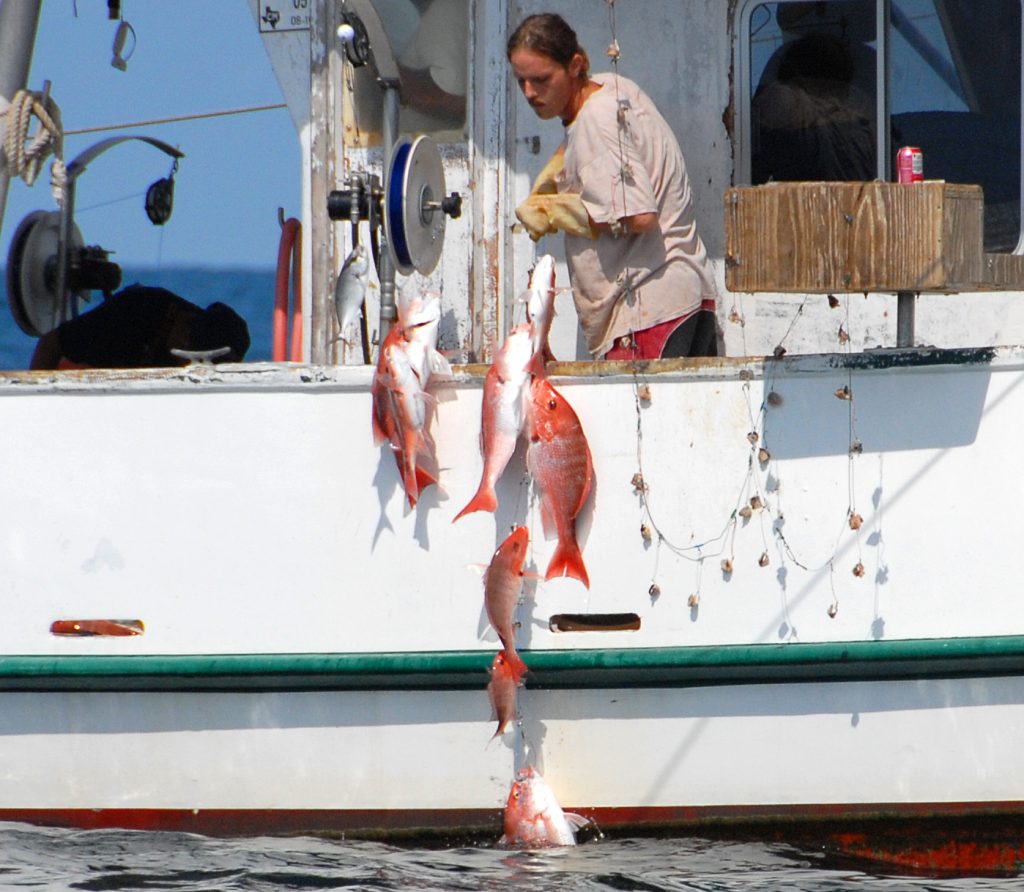September 27, 2012
By Karl Wickstrom

"I'll take more fish than you are allowed, because I'm selling my catch. And on some days I'll load up while you have to sit back at the dock."
Bizarre as that sounds, it is the driving position of much of our commercially tilted saltwater fish management, made possible only because of the special influence wielded by the fish-selling industry.
Bolstering this me-first approach is a never-ending push for "catch shares" and "sector separation." It's a somewhat subtle ploy to expand and solidify the notion that commercial use is wonderfully special, beyond the equal allowances for other citizens. Equality is for others, it seems.
The first maneuver by the fish sellers is to create two different classes of recreational anglers, first those aboard charterboats and secondly the rest of us. Next, no doubt, would come different laws for each category and a blurring of the hard-line distinction between what may be sold on the market.
Federal fisheries and most of their hand-picked council puppets, strangely backed by several ignorant but rich environmental groups, have dug in and apparently will fight at all costs to bring about the changes.
The result could easily lead to strange scenarios such as allowing you to fish on a for-hire boat at the very time that you're closed out on your own boat.
But the details are murky and when it comes to specific examples, the concept collapses like the proverbial house of cards. Even so, as Editor Jeff Weakley warns, we'd better pay close attention or we could wake up to face one silly separation scheme or another, designed to increase profits for a few while undermining the public good.
Why oh why is it so hard for fish managers to serve the public's best interests first and then, if there's a fishable surplus, allow sales of some of this wildlife?
As we see it, there are only two so-called justifications for selling pressured wildlife. One is a claim that the general public is always entitled to a share of the fish. Even the outgoing chair of the Florida Fish and Wildlife Conservation Commission, Kathy Barco, fell into this quagmire when she led the recent move to double commercial sales of spotted seatrout.
Her thinking, if back in the '80s, presumably would have blocked the no-sale gamefish status for redfish that has meant so very much for everyone (but a few fish sellers). Fortunately for all, a commission chair then, Dr. Bill Fox, noted that redfish sales were an "indirect" usage that had to take second priority.
The other alleged justification for continued sales is that, well, it's been that way in the past. That sort of cave-in to outdated history deserves no detailed answer but does require strong advocacy and a measure of courage.
Finally, it should be added once again that evidence shows that non-commercial usage produces the most benefits of all kinds. And the public will not lack for good fish at the marketplace.
In the long run, with certain exceptions, the trend is away from selling public wildlife. Let's keep it that way.
Karl Wickstrom
